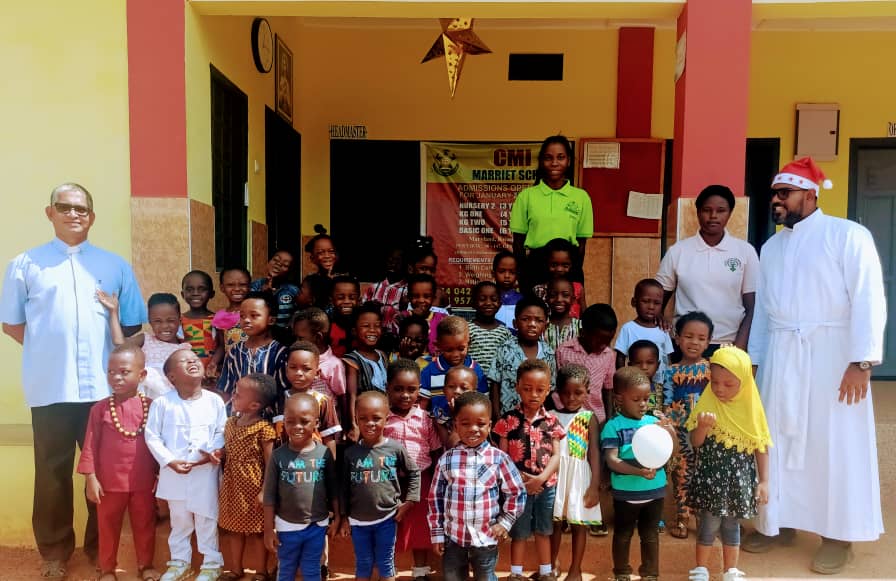Father Benoj Makkollil was born in India, but his heart remains in Ghana, West Africa.
“They have faith. Faith is strong, but poverty is there,” said Father Ben, who spent 25 years in Ghana. He is now the associate pastor at Our Lady of Perpetual Help parish in Sherwood Park.
This year, Father Ben will celebrate his first Christmas in Canada – a far different experience for his previous years as a Carmelites of Mary Immaculate missionary priest in Africa and India.
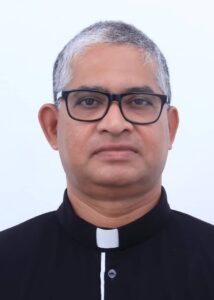
Father Ben was born in Kerala, India – the heart of Christianity in the subcontinent since the arrival of St. Thomas on its coastline. The eldest son in a family of four, Father Ben joined the Carmelites of Mary Immaculate – the first indigenous religious congregation in India – after high school. He had his formation in northern India from 1989 to 1997.
Father Ben recalls the Christmas traditions in Kerala when he was a child. Everyone stays up all night on Christmas Eve singing carols. The local pastor, and parish community, bring a statue of the Christ child to each home – even to families of other faiths. Everyone attends midnight Mass., then they sleep after breakfast on Christmas Day.
“What the West can take is the unifying factor of the church. We lived together whatever our religion,” Father Ben said, although western influences have changed Christmas in Kerala over the years.
Father Ben first moved to his beloved Ghana in 1997, for his pastoral year. He studied theology in Ghana for five years until his ordination on Oct. 15, 2002 at the CMI provincial house in Najibabad, India.
He was appointed 2003, by his provincial superior, to look for and accrue a land for a school project at Champawat, India.
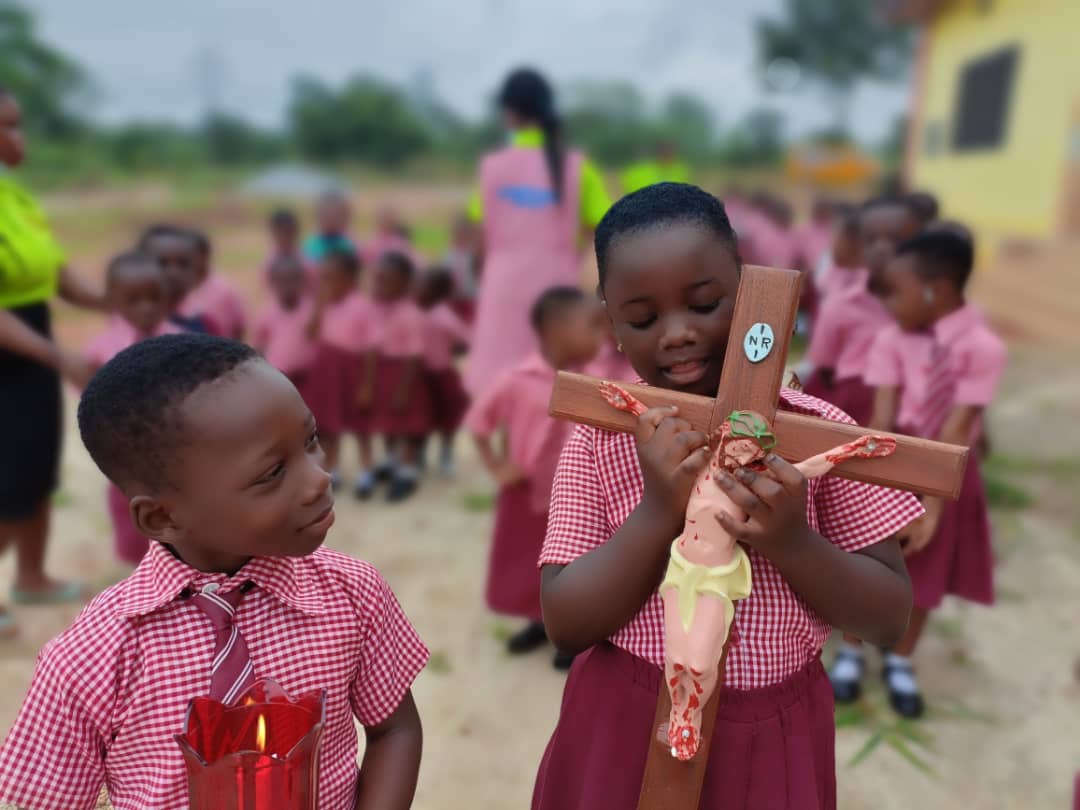
A majority Hindu country, and in some places in India proselytizing in banned by law and property rights for Christians are limited. Father Ben, and his fellow missionary priests, cannot buy land to build a church.
Instead, they establish a school or hospital and then the chapel follows, as place for community prayer and worship for the priests and religious.
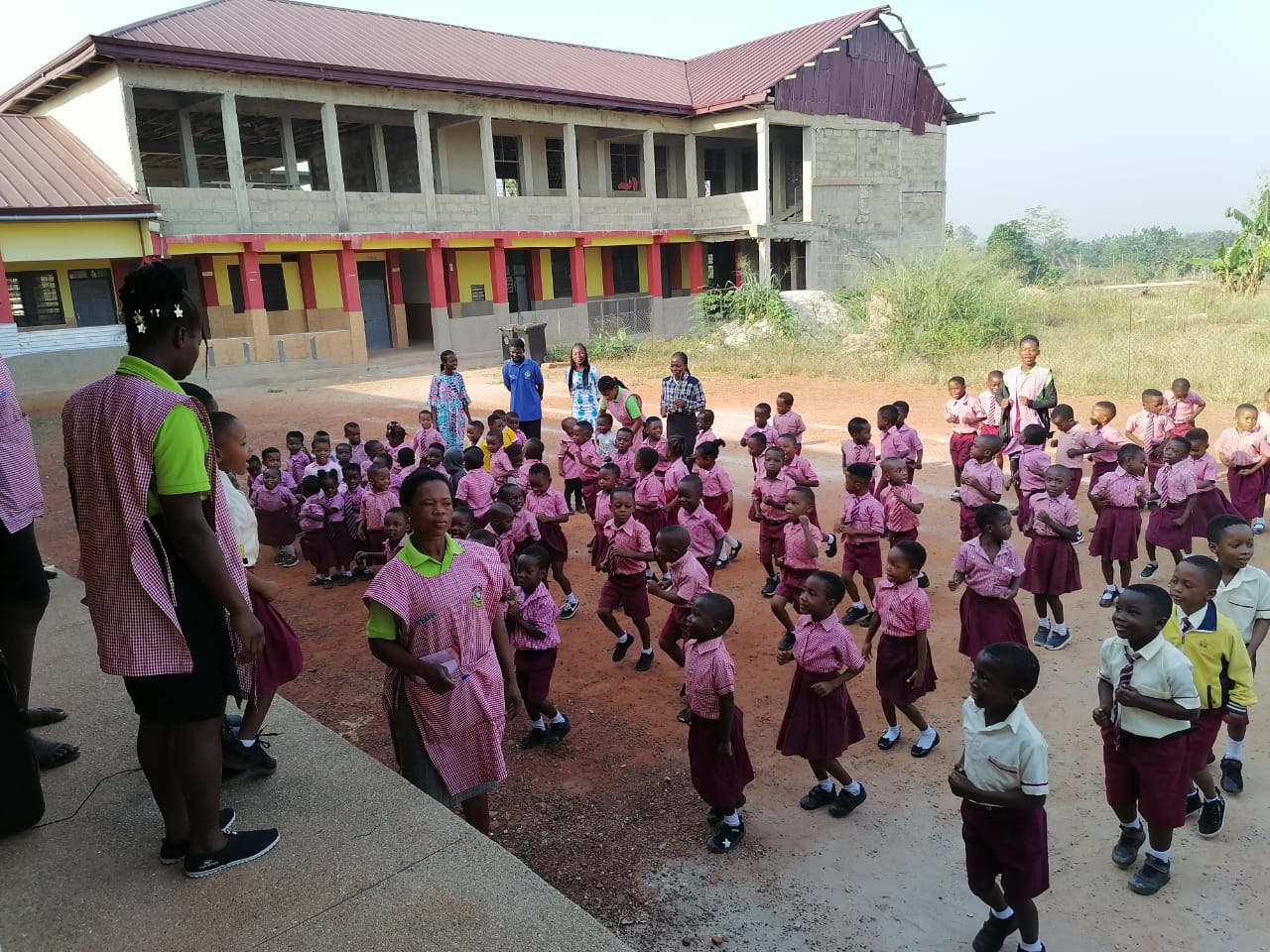
For Father Ben it meant living in the community as the only Catholic. At the initial stages of establishing a mission, missionaries (often appointed to) begin to stay alone, and buy land, build place to stay, and then slowly develop as a Catholic institution.
As pastor, he could buy land for a school, did most of the documentations to build a school at Champawat. Although he had contact with other Carmelite priests in the area, it was a solitary existence during 2003 to 2005.
Was he ever lonely? “Yes,” Father Ben said. “You see, in mission life we are always alone. But God is with me. He has been guiding me. He has been protecting me.”
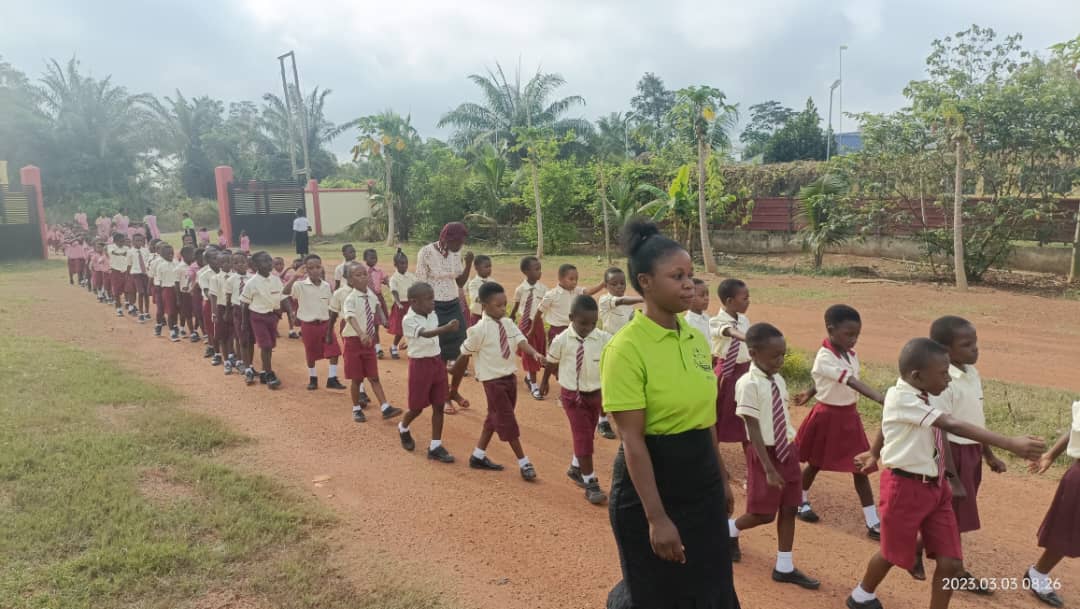
In 2005, Father Ben returned to Ghana as associate pastor, and later pastor at St. Michael’s parish in Ahodwo.
In 2019, Father Ben was appointed to take care of a school project in Kwamang – a huge effort in rural community of just under 10,000 people, located six hours’ north of the capital, Accra.
They had to build the infrastructure at Kwamang. Many of its residents face poverty. They prefer their children help them on the farm rather than attend school, which is expensive and costs tuition, feeding, and transport. Father Ben helped change that.
Watch video of school assembly
A former resident, who now lives in the United Kingdom, donated 10 acres of land in 2018. She requested the CMI missionary priest in Ghana to establish a Catholic school for the use of the children of her village and the surrounding villages. There is road to this school site, but even today, there is no water supply and there is no electricity to this area.
First Father Ben made arrangements to put up a place to stay, dug a borehole because there was no running water and used solar power in his residence and solar water pump to pump water from the borehole..
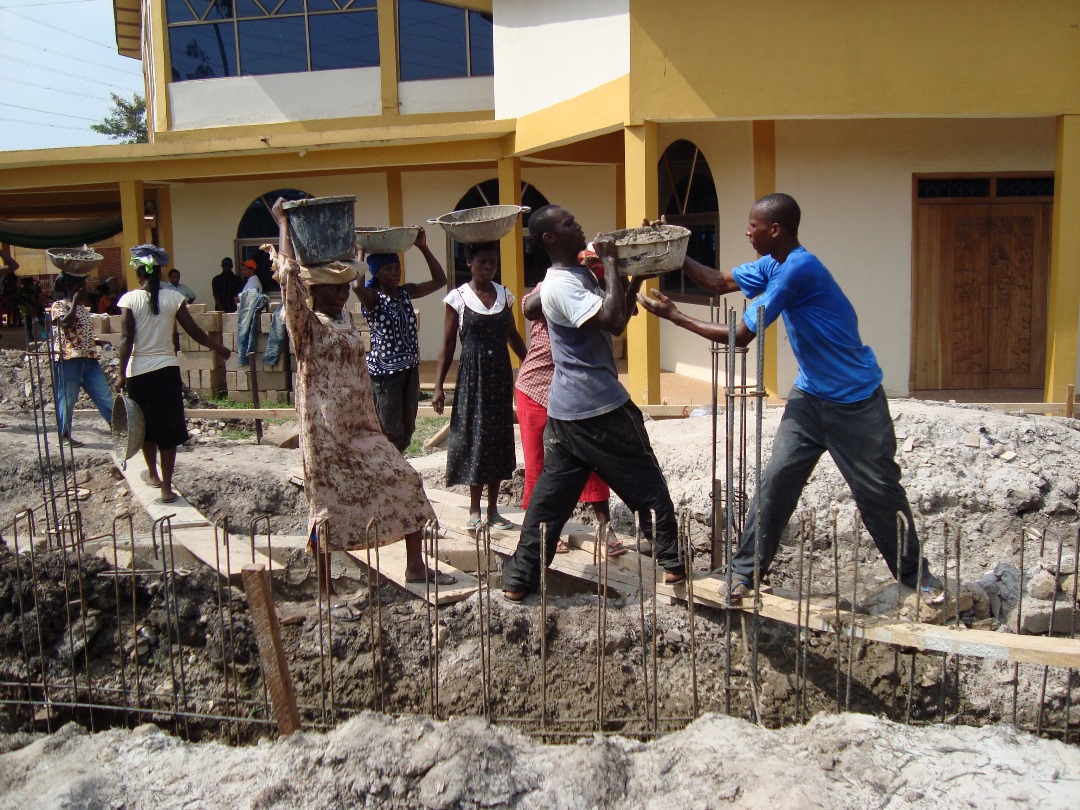
“We had to look for money. We had to pray hard, with all our needs,” Father Ben recalled. “By the grace of God, I got some.”
In May 2019, Father Ben received a donation from Germany to begin the school project. A grandmother was inspired to donate 100,000 Euros ($146,000 Cdn). “She said, ‘I have plenty of money. What should I do?’,” Father Ben said. Her parish priest in Germany, who knew Father Ben in Kwamang, arranged the donation.
Construction of the school began in August 2019, paused during the COVID pandemic, and resumed after restrictions were lifted. Kwamang residents completed the office rooms, sick bay, kitchen , dining hall, and washrooms and one classroom.
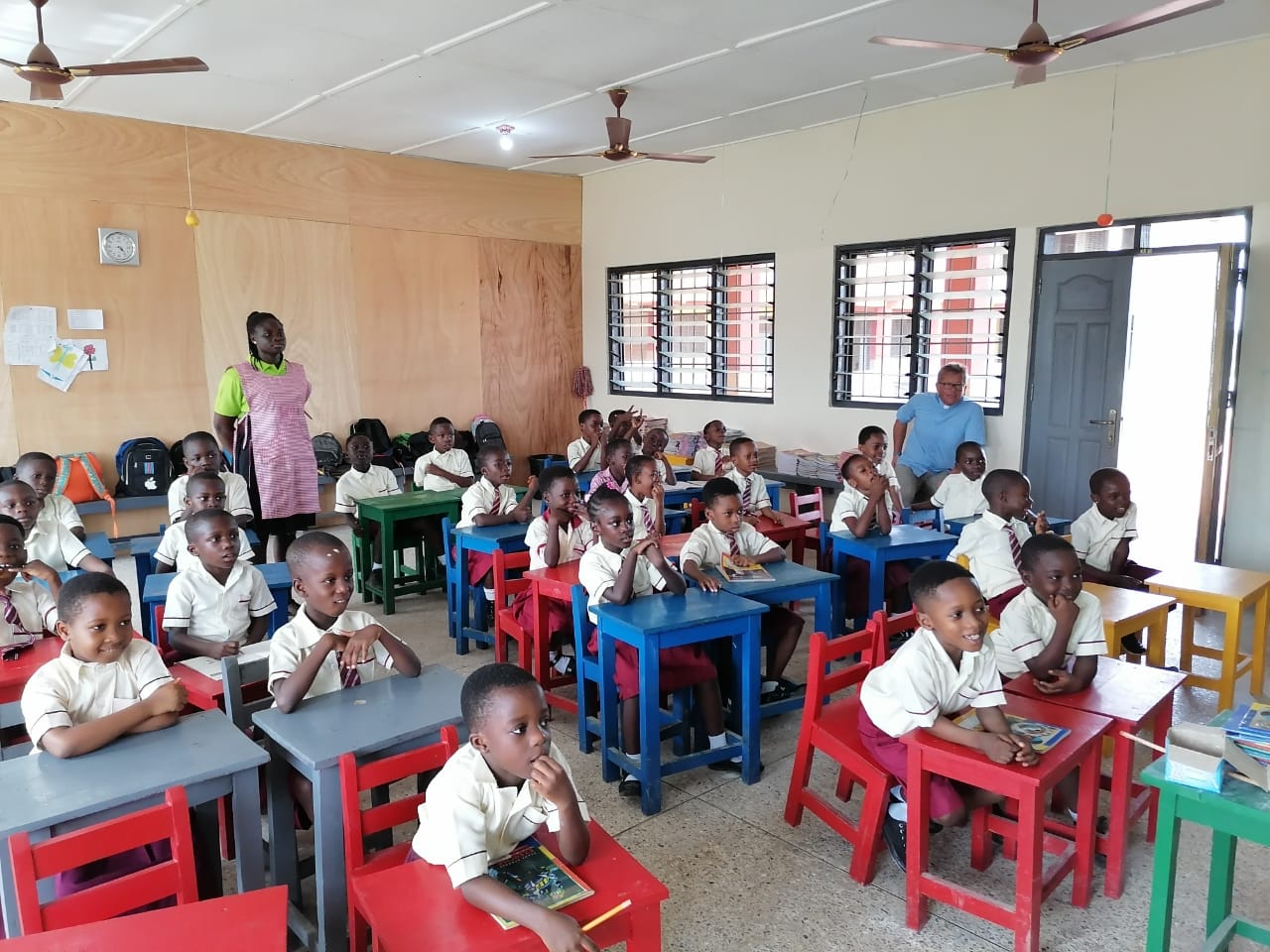
The elderly donor died before seeing the completion of the project. However, her legacy lives on. This part of the CMI Marriet Achool at Kwamang. The name “Marriet” is a compination of “Mary” and “Harriet” honouring the mother and mother-in-law of the woman who gave the land for the school . One of Father Ben’s aunts also donated 20,000 Euros ($29,000.00 CDN) to the school and a classroom was dedicated in her name.
The school welcomed its first students in February 2021. Now there are 173 students up to Grade 2. Parents pay school tuition fee, feeding fee, and transportation, but it’s at an affordable rate. They cannot afford to pay for development of the infrastructure due to their poor income.
As CMI Marriet School is growing, CMI missionaries in Ghana have to find financing to add one each class room every year, and furnish the classroom, and computer lab.
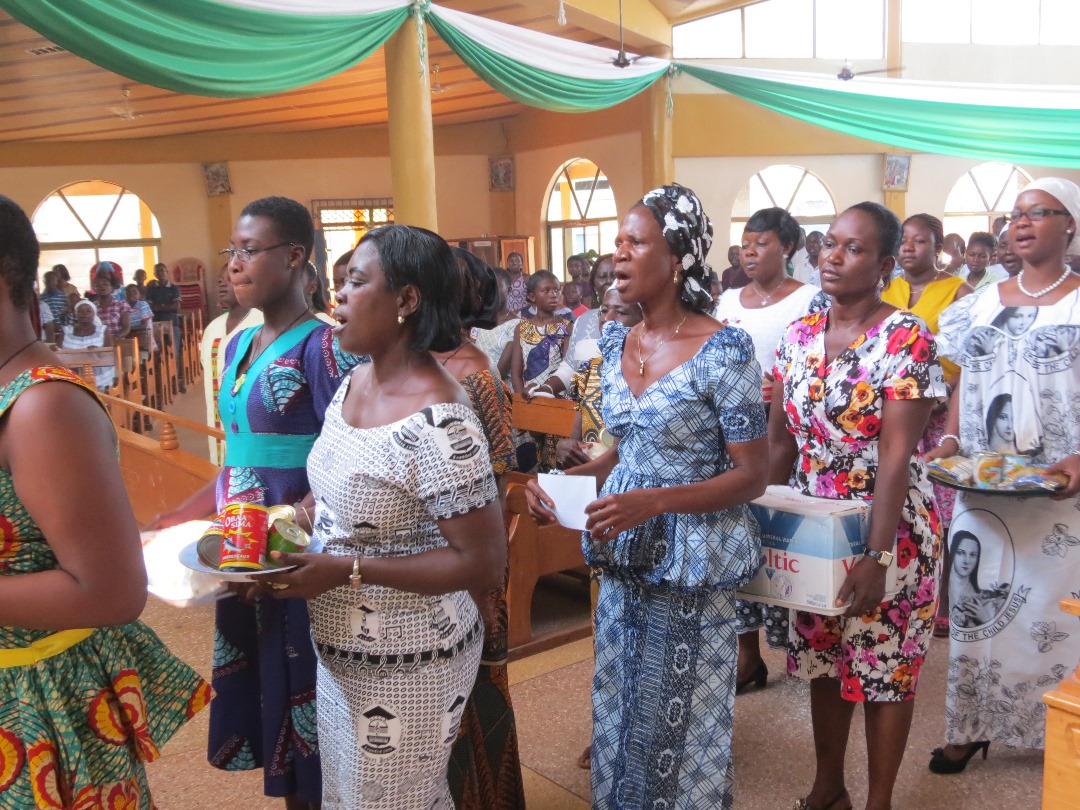
Even amid the poverty in Ghana, Father Ben recalls the Catholic faithful consider it their duty to support their pastor and maintain the parish.
“In the Ghanaian context, people bring offertory for the priest – so, eatables, sometimes they bring oil, rice, tinned fish, vegetables all these things they bring as offertory to the church. First it’s for the priest, and then the priest can decide to distribute … How much can I eat? We gave to the poor and the needy.”
Parishioners bring also Mass wine, host, incense, for the liturgical use of the church.
Father Ben never thought he would leave Ghana. He was even a permanent resident. When his superior said he was being sent to Canada, Father Ben resisted.
“I asked whether somebody else can go from India. Then he said. ‘Since you know Ghana, you go. Sometimes people can hear from you, the Ghana context’,” Father Ben said.
“We enjoy privileges. For the people in unprivileged areas, we should be a blessing like Jesus came as God, a blessing for all,” Father Ben added. “We in our privilege, if we can take care of some of their needs. We can pray. We can contribute. Then, though we stay here, we really become a blessing for those village children.”
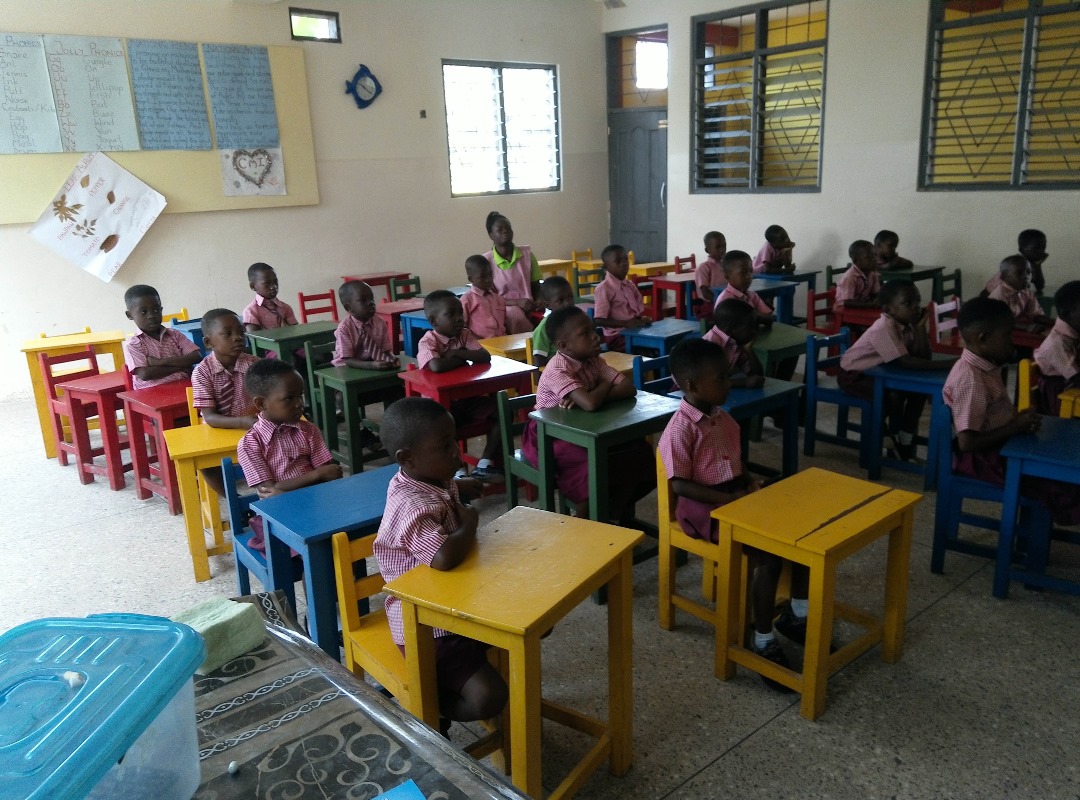 Most of Father Ben’s salary is sent to support Kwaman school. Does he miss Ghana?
Most of Father Ben’s salary is sent to support Kwaman school. Does he miss Ghana?
“Sure, so many years I was there,” Father Ben said. “I miss the food. People. The weather. Everything. The children with whom we started the school. All the staff.”
Father Ben said he’s grateful for the tremendous support from the Archdiocese and Our Lady of Perpetual Help parish since he arrived in Canada on June 22. A few months later he had to buy winter clothes for the first time.
This Christmas, Father Ben will gather for a traditional Keralan meal with his brother priests. But in June 2024, Father Ben will visit his home in India and adopted home, Ghana.
Asked what Catholic faithful can learn from the people of Kwamang, Father Ben is direct.
“Tell our children about the suffering people. Whatever good things we do, in our context, when visiting care homes, take your children also so children, as they grow, they also have an idea of poverty, idea of old age, idea of suffering, how to take care of the elderly.”
-Andrew Ehrkamp, Archdiocese of Edmonton

